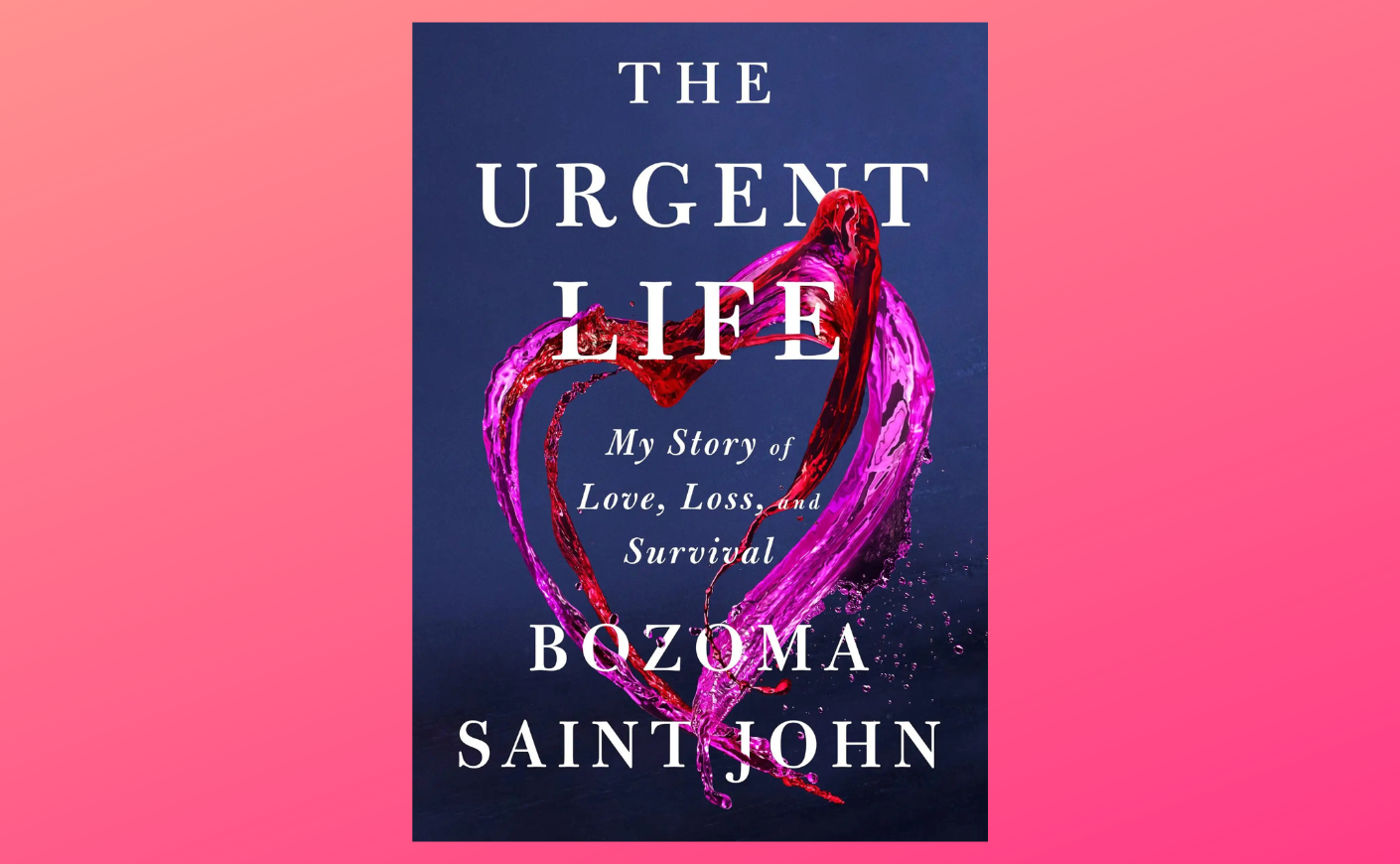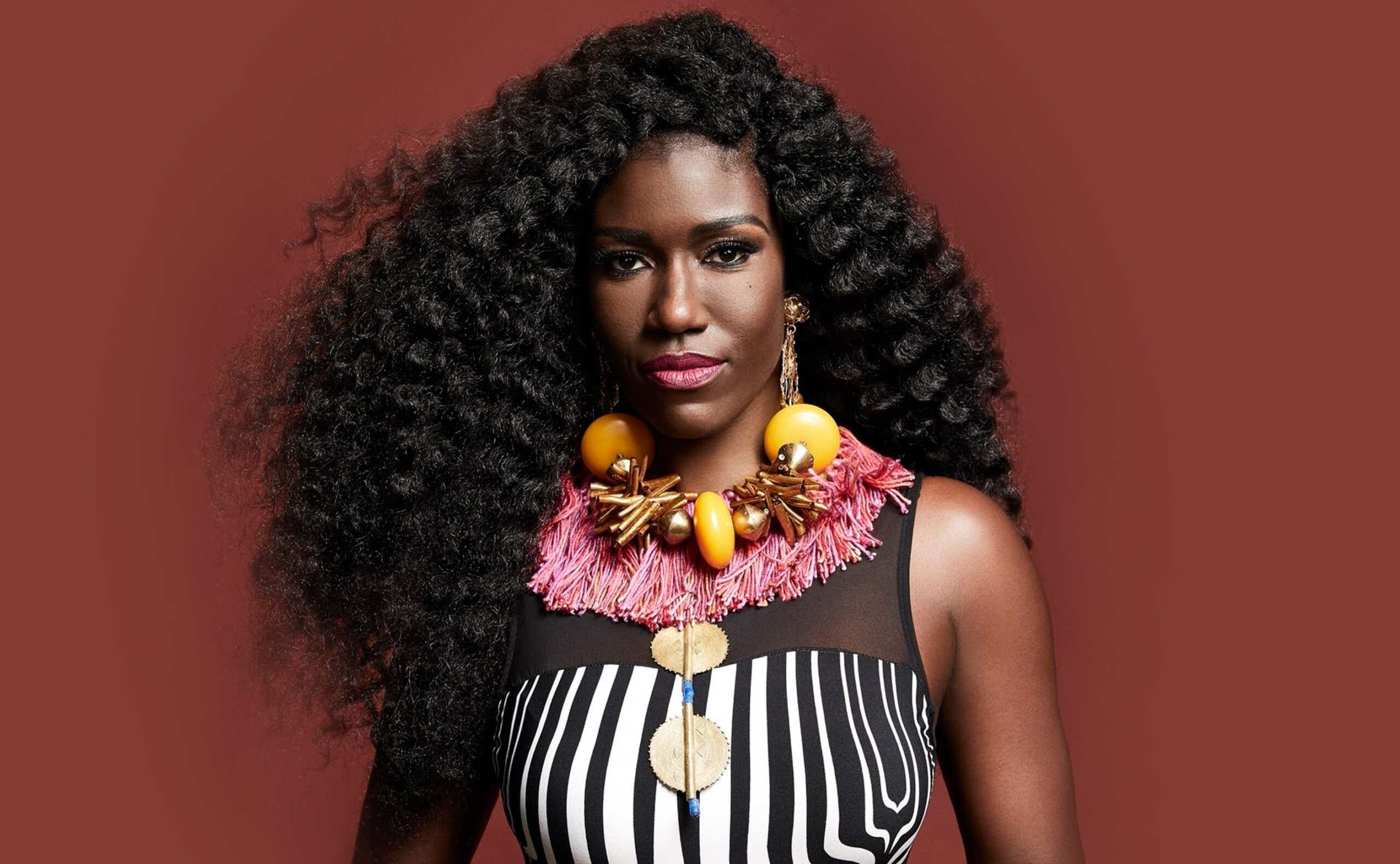The former Netflix executive gets deeply personal in her new book, The Urgent Life.
Executive powerhouse Bozoma Saint John has made a name for herself for her awe-inspiring career at some of the top companies in the world, including Uber, Apple Music, PepsiCo, and Netflix, just to name a few — and she’s even co-hosted a podcast with our very own Katie. But her new memoir shows the struggles that she has had to overcome on the way to success.
In her book, The Urgent Life: My Story of Love, Loss, and Survival, Saint John delves bravely into incredibly tragic personal tragedies, such as her college boyfriend’s suicide and her late husband’s harrowing battle with cancer.
While going back to some of these memories certainly wasn’t easy, Saint John found some silver linings, including a newfound appreciation for life. “At the end of the writing process, I felt proud of myself,” she told Katie Couric Media. “Not necessarily for writing, but for living. I’m proud of the fact that I still take risks, and that I still put one foot in front of the other.”
In a wide-ranging interview, Saint John shares the importance of reflecting on the hard times (as well as the good) and why she doesn’t make five-year plans.
Katie Couric Media: What was the impetus for sharing this incredibly personal part of your life with the world?
Bozoma Saint John: There’s not two of me, one that is professional and one which is personal. The life that I live is intertwined with both of them. Sometimes we feel pressured to not show up with our personal stuff in professional settings, so I think that is what is probably expected of me as a successful business person, which is what most people know me as — that I would show up with a business book, maybe the “How to Be a Badass” book or something like that.
But the truth of the matter is that the challenges that I’ve faced in my personal life have actually made me who I am both professionally and personally. And so I felt the need that, before any other book was written, I would need to write this one first to sort of set the stage for how my life has come to be what it is, and then utilize the tremendous traumas that I’ve experienced in my life to illustrate the fact that despite those things, I’m still able to achieve — and that perhaps I’m even a better human for them.
Speaking of trauma and tragedy, it can be tempting to try and move on as quickly as possible to escape the pain. Why do you think it’s important to take the time to reflect on the hardest parts of our life?
No one wants to sit in something that is difficult. It’s human nature. We don’t like to be uncomfortable, so of course we’d rather move on. But the problem with that is it’s like a scar. You can’t leave it somewhere. It comes with you anyway, even if you try to escape it. So you might as well become one with it. You might as well look at it and try to understand not just what you’ve been through, but celebrate the fact that you have survived it.
I really love when I see people who have tattooed their scars, who have turned them into some work of art, because it reminds us that even the most terrible things — the ones that mark your soul and don’t let you loose — can be turned into a celebration. And my hope is maybe what I have written will allow people to see that I have tried my best to do that, too.

In terms of going back and revisiting these experiences, what was that process like for you?
Part of what inspired me to write the book is at one point during my husband’s diagnosis, I decided to start taking a picture a day, one that I would want to remember, or maybe something that made me laugh or something that made me cry. So I took a picture a day and I put it into my phone album, and I titled it, “One Day at a Motherfucking Time.”
And it’s still the name of the album on my phone. It was actually what I proposed to the publisher first for my book. Very much like photos, writing the book was like just going back into memories that I had put away. Sometimes it made me feel really great when it came to remembering a certain story or a certain experience. Sometimes it made me sad all over again, or angry all over again. So I don’t know if the word is “healing.” I don’t know if that is possible when you’ve lived life in this way. I’m living with these experiences — it is not something that goes away in time, or feels like you’re over it or through it. It just feels like I’m merely creating a new life with those experiences. And so, to some degree, I really enjoyed the process of resurfacing some memories that I had put away.
What would be your advice to someone coping with loss?
The majority of us are going through something. So the advice I give is not even so much about the trauma itself, but about the future and about the present, because I think it’s easy to submit to the fear and submit to the caution that something else is around the corner, the other shoe is going to drop, and therefore we’re not going to be able to enjoy the present.
And then, on top of it, not being able to make any plans for the future. Some of us, including myself, make plans and think somewhere in the back of our minds, “Well, what if something bad happens and I don’t get a chance to do that?” You don’t even consciously think about the joy and you don’t really look forward to it because you’re always waiting and holding your breath, hoping that something bad doesn’t happen.
Part of the solution is being aware of that always because, for me, it’s not even so much like the idea of, “Oh, I gotta combat the fear,” as if you are weak. You’re not weak if you don’t get over the fear of some trauma befalling you, but the strength comes in understanding what exists and then being able to plan and strategize around that. I really try to advise on how to keep living when you have been hit by something that feels like it would end your life.
Your book is about grief and death, but it also explores celebrating life and living urgently. Can you explain what that means to you?
It’s a life of intention. It’s not necessarily just about speed or recklessness. The idea of an urgent life is that we should be able to do the things we want to do right now, and at least have the idea and the plan to do things we want to do, versus putting off the dreams and aspirations and goals until some magical later time when we get a chance to do it. I know that we say flippantly that tomorrow’s never promised, but it really is not.
What’s the one thing you want readers to walk away with after reading your book?
I want them to walk away with hope — real hope for themselves, because it’s not even really about me. I wrote the story about myself and all the people in my life, but my goal is that people who read the book see themselves. They see their own lives reflected back at them, and they will ask themselves whether they’re living their life urgently — and if they are not, they’ll have the hope that they can. If they are, they will continue going in the way that will hopefully end in them feeling total satisfaction with how they lived in the end.
Now that you have this book under your belt, what’s next for you?
I have notoriously said that I don’t make five- to 10-year plans, you know? I’m rather open about where my journey’s going to lead, and I want to be able to experience things that perhaps I didn’t dream for myself. And so even at this moment, I’m very, very present, with promoting this book and being here right now. This is a new experience for me. I’ve never done this before. It’s very, very scary. But I’m excited about expanding in this way. So whether or not I’ll write another book, I’m not sure. This a tough process. From a work standpoint, at least, I just want to continue to grow.
This interview has been edited and condensed for length and clarity.








